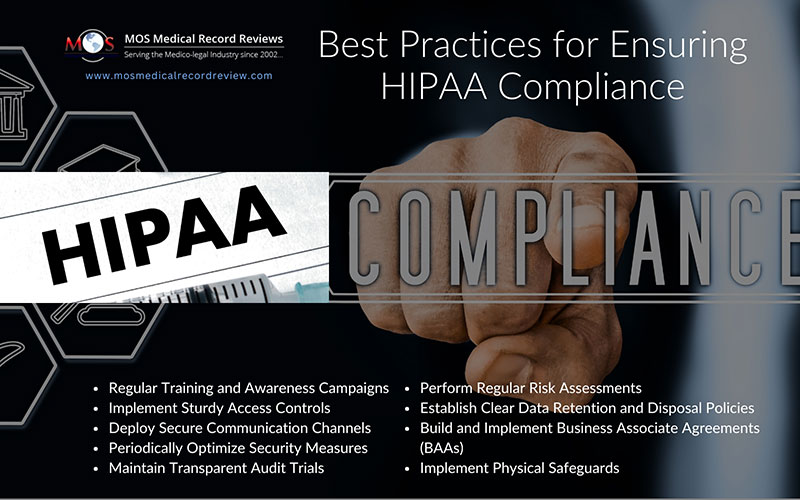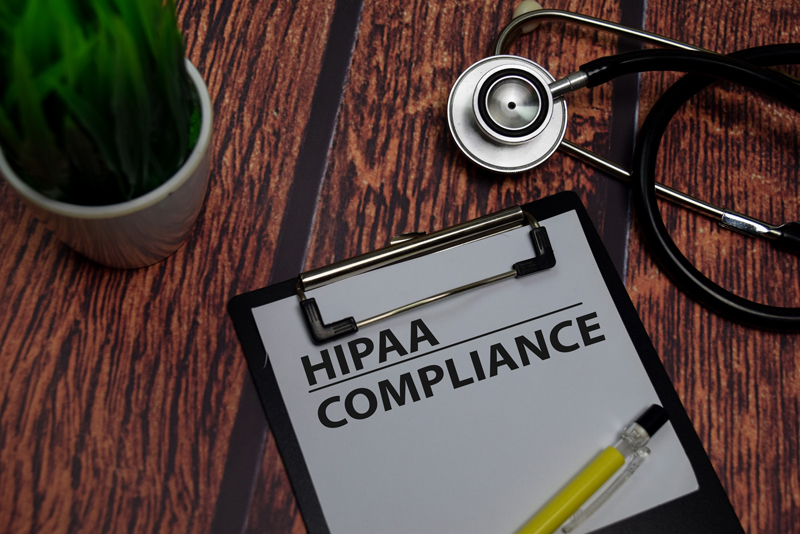A single, slight breach of protected health information (PHI) is all it takes to potentially tarnish the reputation of a healthcare organization and incur penalties costing thousands of dollars.
In 2024, the Office for Civil Rights (OCR) slapped a $100,000 penalty on a mental health center for failing to provide a patient with timely access to their records.
Therefore, ensuring compliance with the Health Insurance Portability and Accountability Act (HIPAA) during medical record reviews is no longer an option, but an absolute legal obligation towards ensuring ethical healthcare practice.
This blog will delve deeper into maintaining the best practices required for ensuring HIPAA compliance during record reviews, protecting patient privacy and upholding the integrity and credibility of a healthcare organization. Additionally, understand why partnering with a professional medical record review company can ensure adherence to relevant privacy regulations.
Understanding HIPAA in Medical Record Reviews
Constituted in 1996, HIPAA accommodates national standards aimed to protect sensitive patient information from being disclosed without the respective individual’s consent or knowledge—even when discussing the case with colleagues or in a research setting. In the context of medical record reviews, HIPAA compliance assures that PHI is handled with the utmost care, preventing any unauthorized access. Non-compliance can attract severe penalties, including substantial fines and legal action.
What Are the Best Practices for Ensuring HIPAA Compliance?
- Regular Training and Awareness Campaigns: One of the best ways to ensure HIPAA compliance is through continuous training of staff members, which help reinforce policies and new updates promptly within the practice, ensuring adherence with the regulations and safeguarding sensitive patient data.
- Implement Sturdy Access Controls: Role-based access controls ensure only personnel with pertinent knowledge on record review/their respective responsibilities, can gain access to medical records. By periodically reviewing staff roles and accordingly updating access controls is important in maintaining efficiency.
- Deploy Secure Communication Channels: Ensuring security of patient data is paramount and by utilizing secure, encrypted channels during transmission of data can mitigate any lapses in security. The basic rule of thumb is to avoid channels with limited security like unsecured emails or messaging services.
- Periodically Optimize Security Measures: The sureshot in ensuring 100% compliance is not just to have a streamlined security system in place, but also to stay updated with the latest technologies and implement necessary updates that ensure protection against new, emerging threats. Regularly assess and update firewalls/antivirus software.
- Maintain Transparent Audit Trials: Make sure to keep comprehensive records of all access and modifications made to medical documents. Maintaining audit trails help in tracking compliance and can be of important asset during investigations involving security breaches.
- Perform Regular Risk Assessments: Periodically evaluating your organization’s processes will help identify any vulnerabilities while handling PHI. After that, make sure to promptly implement corrective actions to address any loopholes in the system.
- Establish Clear Data Retention and Disposal Policies: Define how long medical records should be retained and ensure secure disposal of records that are no longer needed. Shredding physical documents and securely deleting electronic records are essential practices to prevent unauthorized access.
- Build and Implement Business Associate Agreements (BAAs): Enforce an agreement upon all third-party service providers who handle patient data on your behalf so that they too comply with the HIPAA regulations. Make sure to review these agreements once in a while to confirm their compliance.
- Implement Physical Safeguards: Ensure security of physical access to facilities where medical records are stored. Lock the facility and use access cards and surveillance systems to prevent any unauthorized entry. Make sure the workstations and devices used to access PHI are secured when not in use.
What Is the Role of Technology in Improving HIPAA Compliance?
Recent progression in technology offers tools to further fortify HIPAA compliance during medical record reviews. AI-powered medical record review systems can analyze petabytes of data efficiently, while maintaining strict adherence to privacy regulations. These systems can flag discrepancies and identify potential compliance issues in a matter of minutes, thereby validating the access of only relevant information during reviews.
What Are the Challenges Involved in Maintaining HIPAA Compliance?
Despite continued efforts, organizations face a wide variety of challenges in their efforts to maintain HIPAA compliance. Here are a few prominent challenges:
- New Age Cyber Threats: Cybercriminals are continually developing sophisticated bots/viruses, making compliance an easy, moving target. Advanced, regular updates to security measures are vital in counteracting these threats.
- Third-party Vendor Risks: Ensuring that business associates comply with HIPAA regulations requires diligent oversight and regular audits.
- Resource Constraints: Smaller organizations may struggle with the financial and human resources needed to implement comprehensive compliance programs.
Why Collaborate with Managed Outsource Solutions (MOS) for Professional Medical Record Review?
At Managed Outsource Solutions (MOS), we recognize the critical significance of HIPAA compliance in medical record summaries, better than others. Our experienced professionals are dedicated to providing thorough, accurate, and secure medical record analysis tailored to meet the unique needs of healthcare providers, attorneys, and insurance companies.
Final Remarks
HIPAA compliance is indispensable and establishing its compliance is a multifaceted endeavor that requires a combination of diligent policies, continued training, advanced technology, and vigilant overview. By adhering to these best practices, healthcare organizations can protect patient privacy, avoid legal complications, and maintain trust in their services.
Safeguard Your Patient Information
Partner with us to experience unmatched expertise and advanced technology for HIPAA-compliant medical record review





